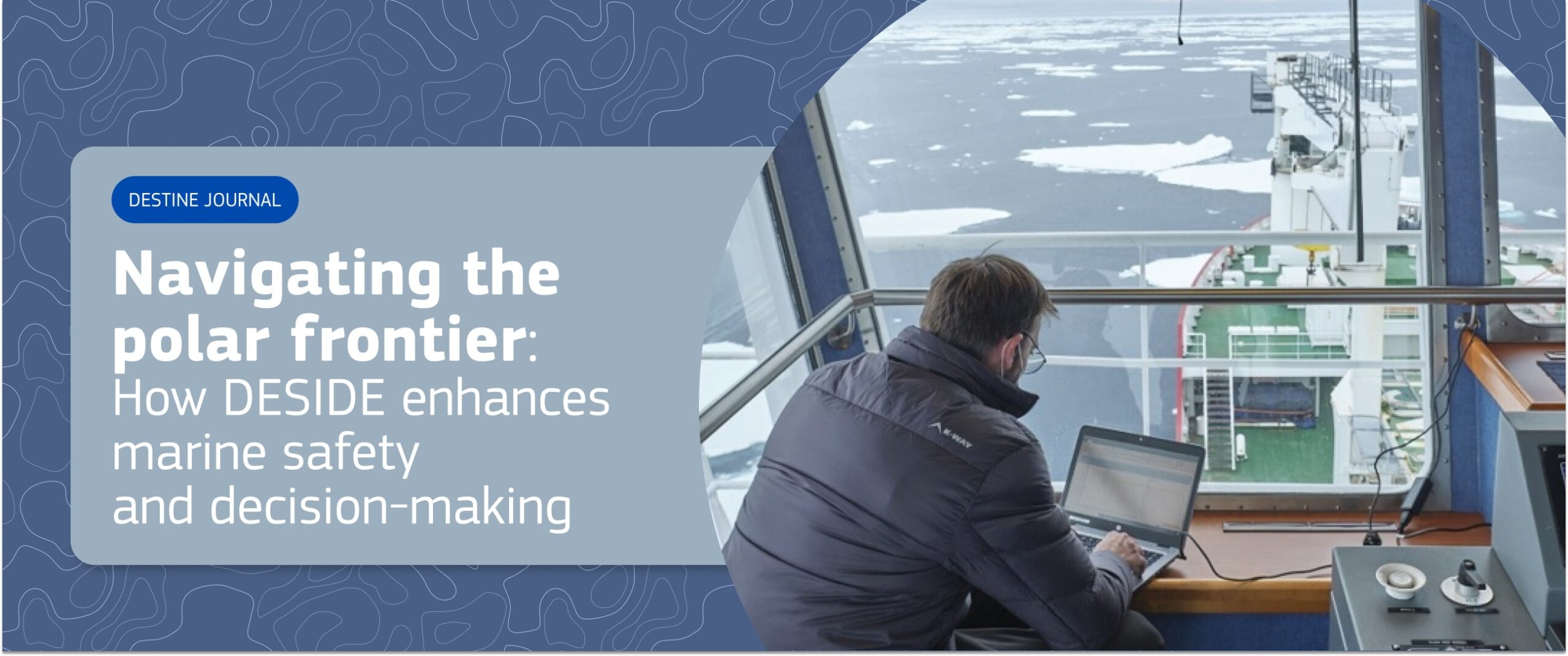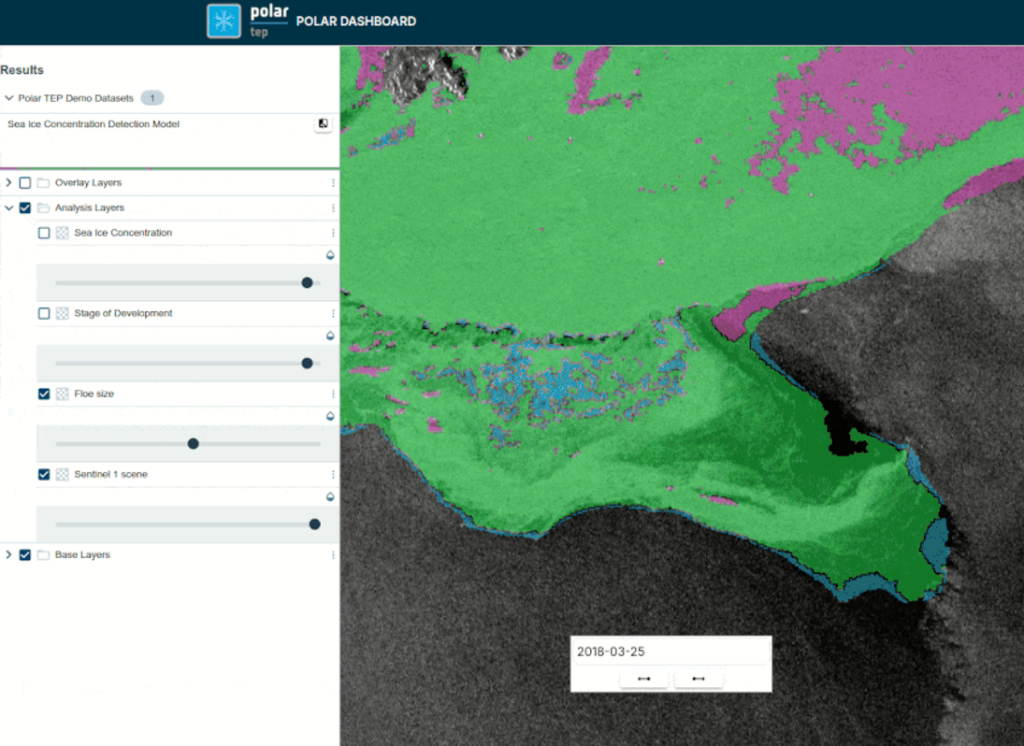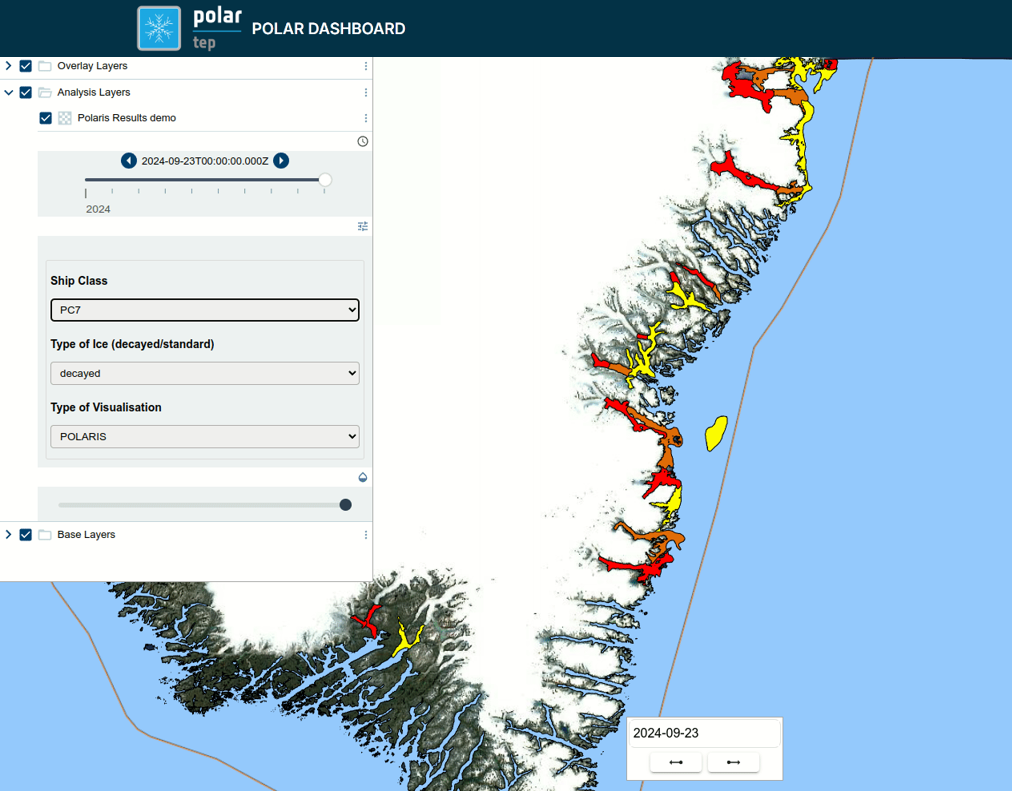Navigating the Polar Frontier: How DESIDE enhances marine safety and decision-making

As the polar regions undergo rapid environmental changes due to climate change, the need for accurate and timely information to ensure safe and sustainable operations in these areas has become increasingly critical. DESIDE, which stands for “Destination Earth Sea Ice Decision Enhancement,” wants to shape the future of polar navigation with cutting-edge technology and a collaborative approach to data integration.
As a Use CaseA practical scenario in which DestinE's capabilities are uti More of the DestinE initiative, the project’s main objective is to enhance decision-making processes in the polar regions by showcasing data and simulations through the DestinE PlatformSelf-standing DestinE system component, interfacing with the More. This information is vital for increasing safety, reducing pollution, and protecting the fragile polar environment from the impacts of human activities.
The polar regions are changing and warming rapidly, causing significant challenges for those operating in these environments, where extreme cold, sea ice, icebergs, and limited daylight, in addition to the lack of in-situ sensors, make navigation particularly hazardous. DESIDE is designed to mitigate these risks by providing up-to-date, accurate information that is essential for safe operations.
The Use CaseA practical scenario in which DestinE's capabilities are uti More aggregates diverse information sources into a single platform, making it easier for stakeholders to access the data they need. The project focuses on three levels of decision-making:
- Execution Support: Providing real-time data for ships navigating through or avoiding sea ice. This is crucial as conditions can change rapidly, with sea ice capable of moving quickly and potentially trapping or damaging vessels.
- Planning Support: Assisting ship operators in planning polar voyages, guided by the International Maritime Organization’s (IMO) Polar Code, which outlines the requirements for safe polar navigation.
- Strategic and Policy Support: Supporting organisations and policy analysts in assessing the long-term impacts of climate change on polar operations, aiding in the development of strategies and policies that are responsive to these changes.
The technological backbone of DESIDE is a data integration and processing system; its software framework, the EOxHub, will be integrated into the DestinE system. This framework processes data from various sources, including Earth observation data and past, current, and forecasted information on a wide range of environmental parameters.

One of DESIDE’s key contributions is its effort to enhance the accessibility of ice charts—essential tools for navigating icy waters. Historically, these charts have been underutilised due to resource limitations. By integrating them into the DestinE infrastructure, DESIDE ensures they are more widely available for operational use and climate change research, addressing a critical gap in polar navigation tools.
By applying DestinE’s advanced infrastructure to real-world challenges, DESIDE demonstrates its potential to transform decision-making in one of the world’s most demanding environments. DestinE’s cutting-edge capabilities, such as its ability to aggregate and process diverse datasets into actionable insights, are key to DESIDE’s success in delivering data that is timely, accurate, and user-friendly.

As the polar regions face unprecedented environmental change, DESIDE stands at the forefront of innovation, ensuring safety and sustainability in the Arctic and Antarctic. By combining the expertise of its partners with the capabilities of the DestinE initiative, DESIDE paves the way for safer operations and more informed strategies, validating DestinE as a cornerstone for the future of polar decision-making.
Make sure you don’t miss important DestinE updates.